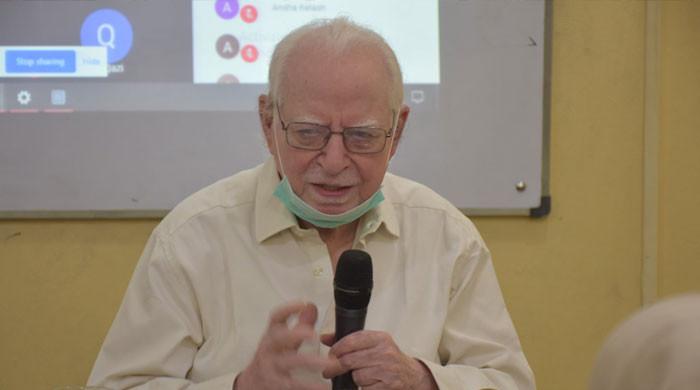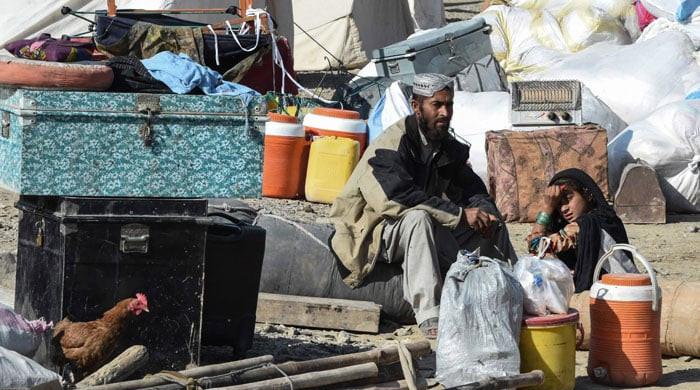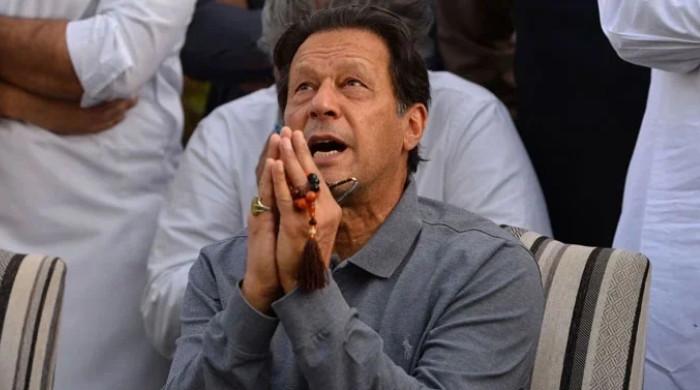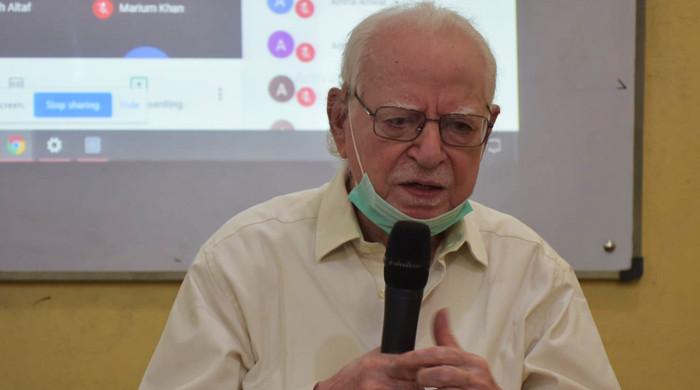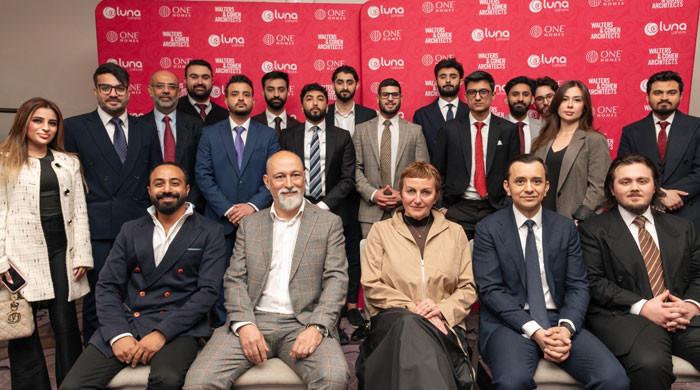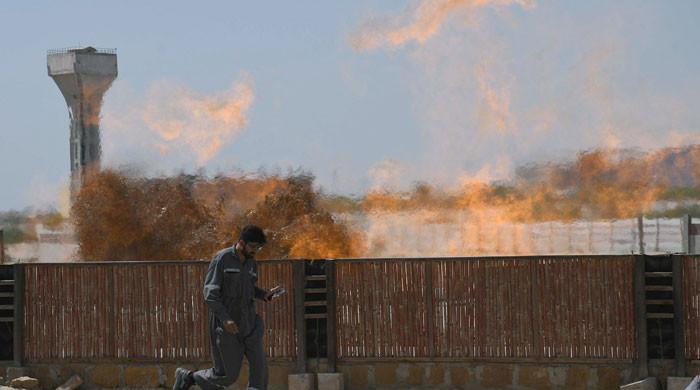NRSP, Google launch Internet Dost and Internet Zabardast event
"Govt is now seriously working on improving internet access available in the country," says Shafqat Mahmood
February 08, 2022
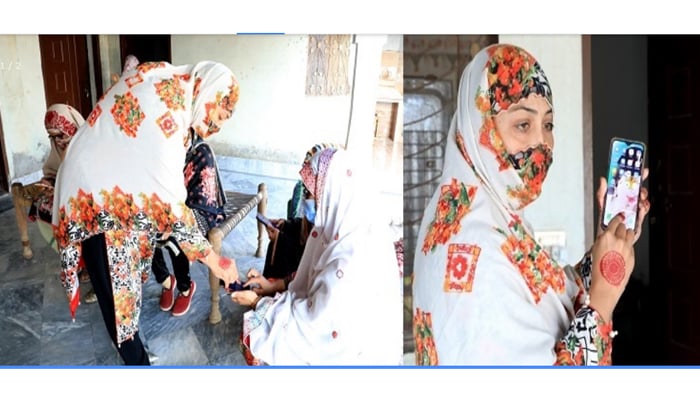
- Programme is started to bridge digital gap between skills in women of rural areas and to teach children about safe online practices.
- "Our project aims to reinforce safer use of the internet for socio-economic empowerment of the disadvantaged communities across Pakistan," says NRSP CEO.
- "Government is now seriously working on improving internet access available in the country," says Shafqat Mahmood.
National Rural Support Programme (NRSP) and Google have joined hands and launched an event called "Internet Dost and Internet Zabardast" on Tuesday, February 8 on the occasion of the global "Safer Internet Day".
The programme has been started to bridge the digital gap between the skills of women of rural areas and also teach children about safe online practices.
On the occasion, the CEO NRSP Rashid Bajwa said that the event is celebrating safer internet day and promoting the responsible use of the internet.
"Our project today aims to reinforce the safer use of the internet for socio-economic empowerment of the disadvantaged communities across Pakistan, especially women who are half of Pakistan’s population but have limited access to the internet as compared to men. The digital and gender divide is actually very real in Pakistan," he said.
Here are some of the facts existing digital disparity between men and women in Pakistan and the use of the internet in the cities and rural areas:
- Only 51% of women own mobile phones as compared to 81% men, that is equivalent to 22 million fewer women than men.
- Women in Pakistan are 49% less likely to use mobile internet than men and this translates into 12 million fewer women than men using mobile internet.
- For an estimated 11 million women in Pakistan, family disapproval is the key barrier to owning a mobile phone.
- Due to COVID-19, virtual education has only been viable and it has forced students to rely on virtual learning. For those with no internet access education can be out of reach.
Footprint’s in 72 district in Pakistan and is connected to almost 4 million rural households.
Bajwa said that the NRSP is launching digital literacy and safety project which includes digital literacy training for underprivileged women and children in the next 12 months.
"The project will train 18000 women to use mobile phone and to access internet. They will be trained by local female activists," he added.
Talking about the safe internet, he said: "An educational curriculum has already been designed with Google according to the local environment. This would teach 25000 students as how to be safe explorers of the online world."
Regional Director for Pakistan, Bangladesh and Srilanka Farhan Qureshi said that the goal is to educate 18000 rural women with digital literacy skills and 25000 youth with online safety skills over the next year.
He went on to say that: "We at Google are delighted to support this program with a grant from a philanthropic arm called google.alt, this grant is a part of our ongoing support of programs, people and partnership to realize the digital Pakistan vision."
"We provided $7.5 million USD in ad grants to help the government disseminate authoritative information about COVID," he said.
Talking about the programs in Pakistan, Qureshi said that they invested in programs that enabled digital skills and employment opportunities for Pakistanis.
"Our CS first initiative equipped students with computational thinking and coding skills. With NRSP, we aim to help keep Pakistanis safe online, both on our products and across the internet," said Qureshi.
He said that much of the work is already done as Gmail filters emails by itself and Google play protect automatically checks apps to keep you protected.
He said: "However, Internet Zabardast will focus on helping children become safe and responsible internet users while Internet Dost will provide digital literacy among rural women.
"According to UNFS, COVID-19 induced school closure disrupted learning for approximately 40 million students in Pakistan in 2020 and in 2021, a report from GSMA found that women in Pakistan are 38% less than men when it comes to owning a mobile phone.
"Be internet awesome circular is a free multi-facilitated program designed to teach kids how to be safe and confident explorers of the online world. This program covers topics like Phishing, scams and avoiding online harassment and reporting inappropriate content as well," he explained.
The director thanked NRSP for its invaluable efforts to address the digital divide in Pakistan, the minister of education and other key stakeholders supporting this initiative.
On the occasion, Federal Minister of Federal Education and Professional Training Shafqat Mahmood said that the cutting edge technology has improved immensely in all aspects of life.
"However, during COVID, we discovered that technology is crucial to education. During the pandemic when everything was shut down it was only through technology that we were able to reach everybody," said Mahmood.
He also said: "We realised that there is a great digital divide in the country and a lot of people didn’t have access to the internet. Government is now seriously working on improving internet access available in the country."
The education minister said that the government's main purpose is to use technology to teach children and rural areas and make sure that they get the benefits of a good education.
"Fortunately, Pakistan has educational technology and there is a fair degree of content available. The ministry of education has established a distance learning wing and is in the process of developing content," he said.




